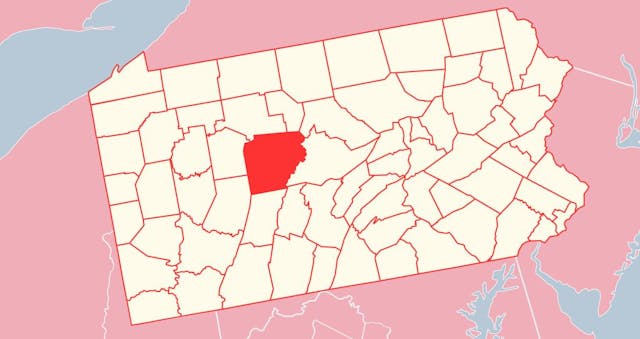Rehabs in Clearfield
Clearfield county is a region located in Pennsylvania, USA. 80,562 people live there as of the 2020 Census. The town of Clearfield serves as its regional capital.
Clearfield is known as the "Old Town Historic District". Many historical landmarks from the late 1800s. The neighborhood features an intriguing mix of antique merchants, specialized stores, and old houses and structures.
But it has many issues, including drug abuse, just like any area of the modern world. According to a Pennsylvania Department of Drug and Alcohol Program recent survey, 7.99% of Pennsylvanians use illegal drugs in the previous month. While 8.82 is the percent of the national average. And further 3.21 percent of Pennsylvanians admitted to consuming an illicit drug besides cannabis in the last month.
Fortunately, Floyd county rehabs are available to help those who struggle with substance abuse.
Substance Abuse Evaluation
Evaluation is a crucial step when deciding to enter rehab. During this procedure, experts determine the severity of the addiction. The patient gets aware of any additional conditions they may have because drug users struggle with both physical and emotional well-being. For the most significant treatment possible, co-occurring disorders must be acknowledged and treated along with substance use disorder.
Available Treatment Options
Locals in all stages of substance abuse and addiction are served by drug and alcohol treatment facilities in this region. Therefore, assistance is available to people who have not yet reached a critical stage of drug dependence.
The effects of addiction are felt at every stage of the person’s life. Therefore, less damage would be done if the client enters drug rehab as soon as possible. Many people postpone receiving medical attention at the same time as it is quite a difficult decision to make. Thus, it's also crucial to have family and friends on the patient's side. They should know that the problem is urgent and seek specialized assistance.
Inpatient Program
Inpatient therapy includes ongoing support and care from qualified medical experts. Patients reside in a facility for the whole period of treatment. The services offered include life skills training, 12-step care plans, and individual and group therapy. Patients can also access services for fun and stress relief.
Three weeks to many months may pass throughout this type of therapy. However, it is the quickest way to recover.
Outpatient Program
For people with only a minor level of addiction, outpatient care is an excellent option. It is more suitable for people who undergo therapy while working or studying. So, the patients are not required to stay in the hub. Instead, they simply make three to five visits per week to the hub and participate in extensive sessions.
Payment Options and Costs
Before calculating the cost of treatment, one must take into account options and the services each institution offers. Treatment will cost a different amount depending on several factors: such as how long the client remains, the type of treatment they select, and the level of care one needs to get.
The use of private health insurance is fairly common. To find out more or to confirm the service, they phone the number. They might also find out if Medicare or Medicaid would cover any of the costs.
For a 30-day treatment, some inpatient rehabilitation centers may charge around $7,000. Popular facilities might charge up to $20,000 for a 30-day program. The average cost for people who need 60 or 90-day regimens ranges from $10,000 to $65,000. The luxury ones, such as Community Guidance Center, cost way more and offer additional services along with general therapies.
Forcing Teens Into Rehab
The period when the teen first develops an addiction is the most painful and challenging. To address and solve this issue, the parent has a dual obligation.
Parents must keep in mind that as soon as they recognize this, they must take their children to therapy and get them examined correctly. Also, they need to convince their teen without pressuring him or her and make an effort to get along with him or her. Children must trust their parents/ relatives and understand that they are committed to them. Even if the law enables forcing a teen into rehab, the specialists still recommend consulting a psychologist and enrolling in family support.

